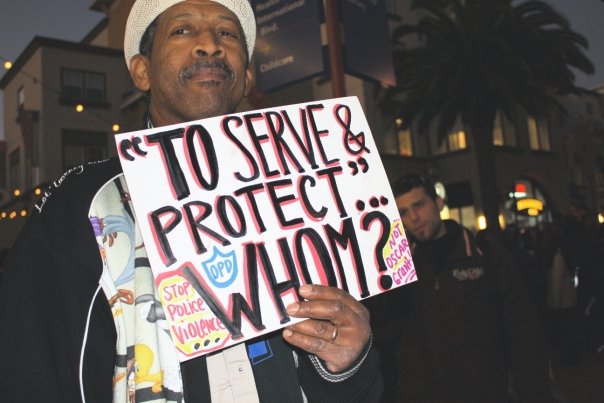
With a black man in the White House, many thought it was the end of segregation. They thought that with the presence of Barack Obama there would be changes in favor of equality and against racism. It has been 150 years since the same thing was believed after the abolition of slavery.
It never occurred. Every now and then, a new episode reminds us how deeply embedded racism is in American society and culture. In spite of the great fight for civil rights in the ’70s, there still exists evidence of segregation. Some issues are not officially resolved, such as the low level of education and access to healthcare that African-Americans endure, and other social facts that remain well-known secrets, like the devaluation neighborhood properties suffer when a black man decides to move into that area.
However, it is the hate crimes, the violence and improper use of force against African-Americans and other minorities that periodically makes the country confront itself and become polarized, reopening old wounds. This time, the tipping point was the murder of a young 19-year-old black boy, Michael Brown, at the hands of policeman Darren Wilson in the town of Ferguson, a suburb of St. Louis, Missouri.
The disproportionate use of six shots — two in the head — to stop an unarmed boy who only rightfully raised his hands in surrender, and the subsequent police excess in detaining the furious population, seemed to feed the flames of a case of racism that ended, once again, with the country’s system of public safety being questioned.
Barack Obama and Attorney General Eric Holder had to intervene to add a little restraint, acknowledging that the police force is excessively militarized, composed of equipped snipers and the latest armor-plated cars; too much counterforce to detain a hurt and frustrated population, even given the infiltrating delinquents who arrived from other states to generate chaos and anarchy.
The circumstances in Ferguson brought to mind the murder of Trayvon Martin, an unarmed black youth from a town in the center of Florida who, in 2012, was taken down by a volunteer Neighborhood Watch person, George Zimmerman. Just as now, with obvious racism, verification of excessive force and the fact that the police are disproportionately composed of whites in predominantly black cities, violent civil reactions involving rocks, Molotov cocktails and shots fired have multiplied everywhere.
Racist crimes, weapons and the police force: once a motivational cocktail for Martin Luther King’s energetic speeches, always end with Obama at a crossroads. As president, he cannot score points for civil rights as he would like to, but seeks out good mutual points of balance.
In the case in Florida, after Zimmerman was declared innocent in 2013 by a law that permits the use of firearms in personal defense, Obama led a crusade against the civil use of firearms that did not come to a good end. In spite of support being mobilized in more than 100 cities, powerful groups were able to uphold the carrying of weapons for personal defense as a guaranteed constitutional right.
In the case of Ferguson, it is not about an individual’s right to personal protection, but about the excess use of force by the law. This excess is ensured by the Department of Defense’s 1033 Program, which permits the Pentagon to transfer surplus military equipment left over after the Iraq and Afghanistan wars to law enforcement agencies.
This reuse of armament takes on a disproportionate dimension among city residents, who are only accustomed to seeing them on television or in video games.
The discussion has already started to leave a deep mark. Some legislators want to demilitarize the police and others think that military armament is the only way of dissuading possible terrorists, mafias and drug traffickers with a high capability of firing [back].
Unfortunately, it seems like the controversy will lead in this direction, just as before it led to the use of arms for personal defense, so that a profound discussion of racism will once again be postponed — at least until a new hate crime is committed.

Leave a Reply
You must be logged in to post a comment.